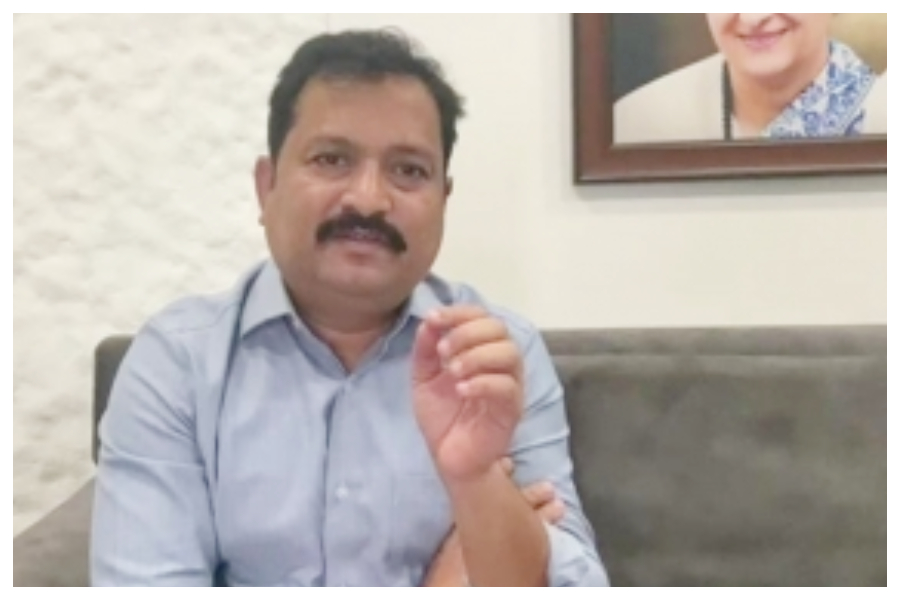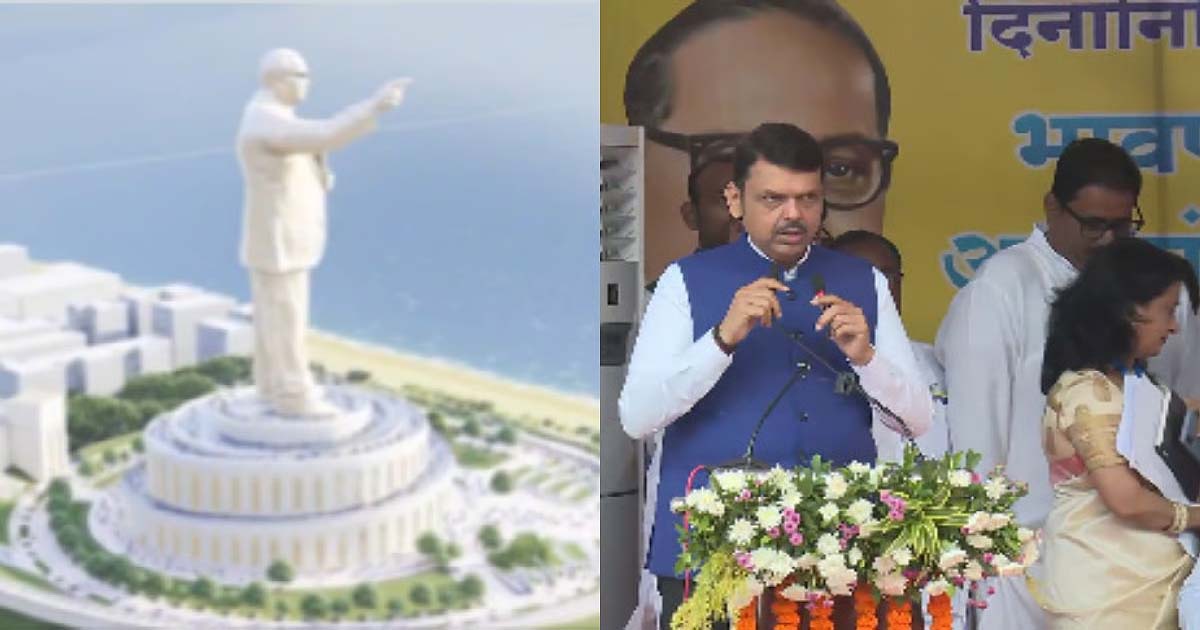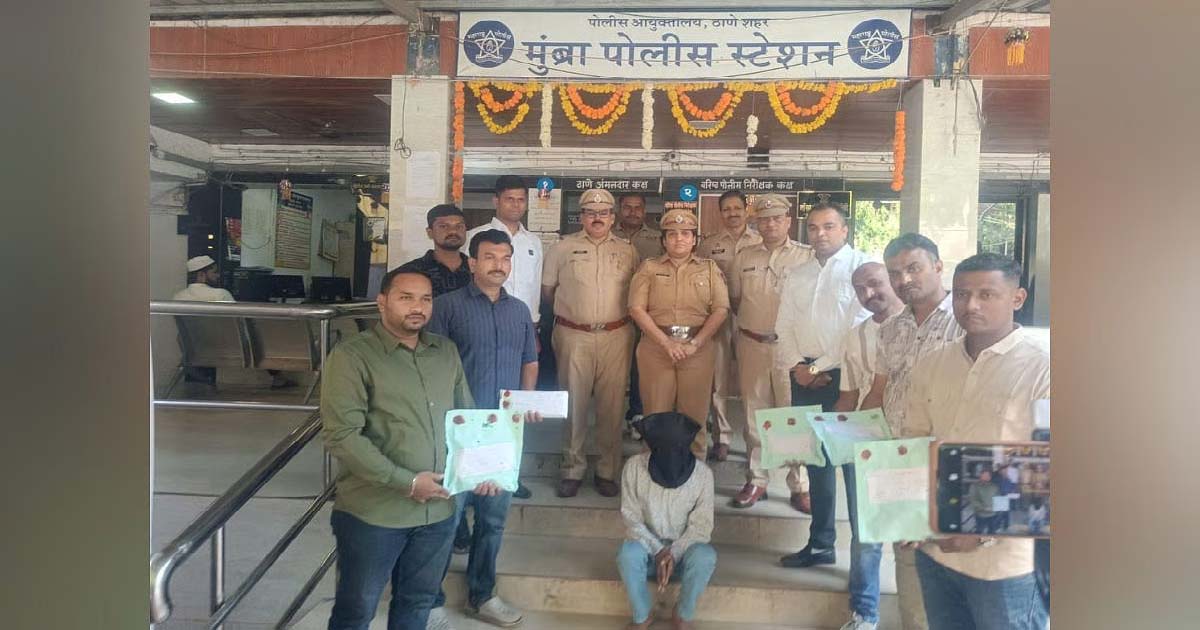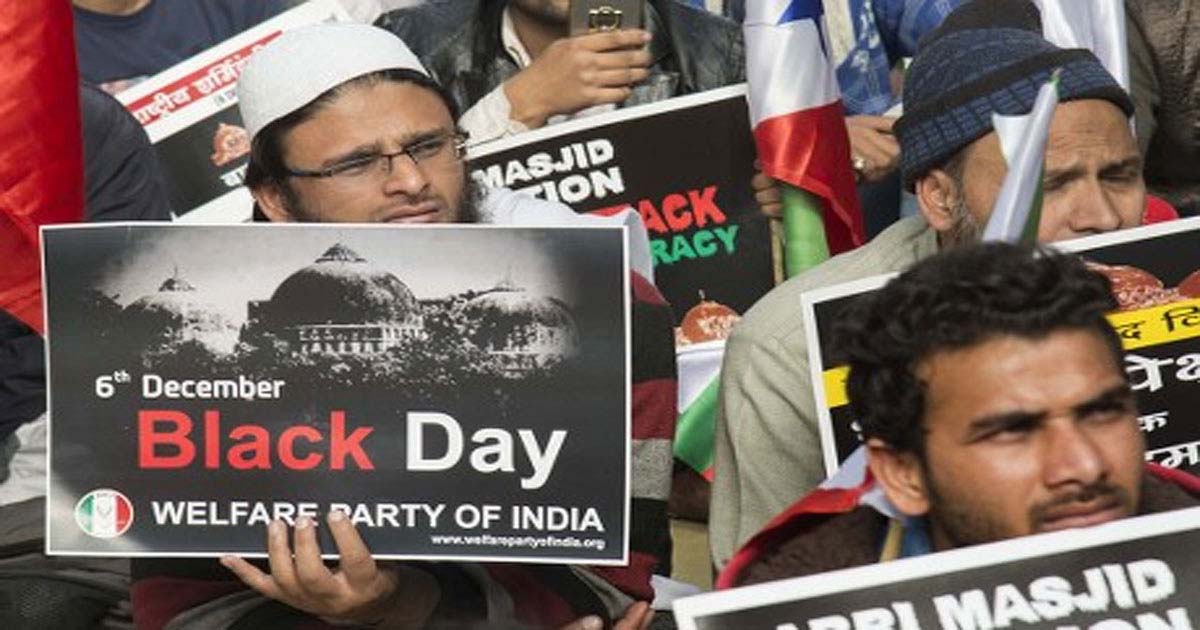National News
Fadnavis applied ‘Gujarat snooping model’ in Maharashtra

Maharashtra Congress chief spokesperson Atul Londhe on Monday alleged that the Bharatiya Janata Party’s Leader of Opposition Devendra Fadnavis had introduced a ‘Gujarat brand’ of surveillance tactics in Maharashtra and demanded a through probe into the matter.
His demand came amid the backdrop of the FIR lodged on February 26 by the Pune police against former city Police Commissioner Rashmi Shukla in the illegal phone-tapping case.
“IPS officer Rashmi Shukla is merely a pawn. The real culprits are those who guided her. Fadnavis was the state chief minister and he implemented the ‘Gujarat surveillance model’ in Maharashtra,” Londhe said here.
His comments also endorsed state party president Nana Patole’s demand on Sunday that the role of Fadnavis — who was handling the home portfolio during the relevant period — must be investigated in the illegal phone tapping case.
In a significant development on Saturday, the Bundgarden Police booked Shukla, currently Additional Director-General, CRPF, at Hyderabad, in the unauthorised phone-tapping case that rocked the state polity last year, leading to the resignation and subsequent arrest of former Nationalist Congress Party’s home minister Anil Deshmukh.
The FIR against Shukla followed a recommendation by a state government panel headed by ex-DGP Sanjay Pandey, invoking the Indian Telegraph Act, Section 26 and other laws for tapping phones of prominent opposition leaders between March 2016-July 2018.
Speaking to the media here, Londhe charged that the ‘Gujarat surveillance model’ — in which the government of the adjoining state allegedly snooped on people and overheard their private conversations — was introduced in Maharashtra by Fadnavis.
“After 2017, the phone numbers of Patole, Shiv Sena, Nationalist Congress Party and Congress leaders, ministers, certain BJP leaders and their ministers, top bureaucrats and others were tapped illegally. The snooping was ostensibly to link them with drug dealers,” said Londhe.
Patole had raised the issue in the Assembly in the past and it finally culminated in the FIR against Shukla, who was the Additional DGP, Maharashtra State Intelligence Department (SID).
Although the case has been lodged against Shukla, what is pertinent is to unravel who ordered the phone-tapping, what was the purpose, whom did she hand over the records of the phone conversations, how did it reach Fadnavis after the Maha Vikas Aghadi (MVA) government came to power in November 2019.
“There are many such questions, and the government should extend the probe to cover even Fadnavis which will reveal the real masterminds,” Londhe said.
Patole said that “Shukla would not have dared to indulge in illegal phone-tapping without the blessings of a senior government functionary” and it was imperative to investigate Fadnavis’ role and bring it in the public domain.
Referring to how his own phones were tapped and how he was given a fake identity, or having links with the drug mafia, Patole said these were intended to browbeat the opposition leaders and legislators at an opportune time.
“Phone-tapping can be done only with special permission to investigate serious matters like terror or narcotics, but our phone conversations were overheard despite us having not a remote connection to such crime,” Patole pointed out.
Referring to how the BJP at the Centre was allegedly using the Pegasus software for spying on ruling or opposition parties’ leaders, ministers, judiciary and the media, Patole said it is imperative to probe the role of Fadnavis completely in the Maharashtra phone-tapping case.
In March 2021, after Fadnavis raised a hue and cry over the phone-tapping issue, pointing to an alleged racket in the transfers-postings in the police department, the SID lodged a complaint with the Mumbai Police.
Fadnavis’ contentions came after a Top Secret report submitted by Shukla to the then DGP Subodh Jaiswal on August 23, 2020, which he (Fadnavis) later followed up with the Centre demanding a CBI probe into the thriving transfers-promotions racket.
National News
Mahaparinirvan Diwas 2025: Dr Ambedkar’s Mumbai Memorial To Near Completion By Dec 2026 | All You Need To Know

Mumbai: Maharashtra Chief Minister Devendra Fadnavis on Saturday, December 6, said all efforts will be taken to ensure completion of the grand memorial of Babasaheb Ambedkar at Indu Mill in Mumbai’s Dadar area by next year. While speaking at a function at Dadar’s ‘Chaityabhoomi’ to mark the 69th Mahaparinirvan Day (death anniversary), the CM said, “Construction work is on, and all efforts will be taken to complete it by December 6 next year.”
– The under-construction 450-foot memorial of Bharat Ratna Dr Babasaheb Ambedkar, taking shape very close to the sacred ground of Chaityabhoomi, features a 350-foot-tall statue and a 100-foot-high pedestal.
– A steel and bronze statue, standing 350 feet tall, is being prepared in Ghaziabad by the firm of renowned sculptor Ram Sutar, a Maharashtra Bhushan and Padma Bhushan awardee.
– More than 1,478 tonnes of steel and 107 tonnes of bronze have already been procured; intricate bronze panels covering 661 square metres are complete.
– The 4-hectare memorial also features a 1,000-seater auditorium, a research centre with seminar halls, a library, a meditation area, a promenade, a Parikrama Path, two-story parking area.
– In an update by MMRDA, it stated that over 54 per cent of the work on the monument is complete.
– The Maharashtra govt had in 2013 appointed the Mumbai Metropolitan Region Development Authority as the Special Planning Authority (SPA) for the development of the memorial on a 4.84-hectare plot. Its ‘bhoomi pujan’ was held on October 11, 2015, at the hands of Prime Minister Narendra Modi.
– The site is close to ‘Chaityabhoomi’, where lakhs of followers converge every year on December 6 to mark the death anniversary of Ambedkar. He died on this day in 1956.
NCP (SP) working president Supriya Sule has questioned the delay in the construction of the memorial complex. While speaking to reporters
Speaking to reporters after paying tribute at ‘Chaityabhoomi’ on the 69th Mahaparinirvan Diwas of Babasaheb Ambedkar, she said, “Even after land was given for the grand memorial, why is it taking so long to complete it? Big road and infrastructure projects of the state are being completed, but this memorial is a place of faith for all of us. Why is it still not complete? The state government must answer.”
Crime
Thane NDPS Wing Busts Drug Racket; Over 2.2 Kg Hashish Worth ₹1.10 Crore Seized In Mumbra, 1 Accused Arrested

Thane, Dec 06: Thane City’s NDPS branch has achieved a major success. Under an on-ground operation, the police have exposed an active gang selling narcotic substances. In this action, the police have recovered approximately 02 kg 201 grams of hashish (charas), the market value of which is estimated to be one crore ten lakh sixty-five thousand rupees.
This operation was led by Senior Police Inspector Nitin Shinde. His team included officers and personnel from the crime branch, who carried out this action based on secret information.
Police had received information that some individuals were selling hashish and other intoxicating substances in the Mumbra area. Following this, the team laid a trap, cordoned off, and caught the suspect in the Bandewadi area. A large quantity of hashish was recovered from his possession upon search.
The suspected accused has been identified as Moin Khan, alias Hasrat Ali Siddiqui. Preliminary interrogation revealed that he used to illegally procure hashish from Jammu and Kashmir and sell it in Thane, Mumbai, and surrounding areas. The accused already has several serious crimes registered against him.
In this regard, Mumbra Police has registered a case under NDPS Act 20(a)(i)(b), 29, and further investigation is underway. The police are also trying to find out who else is involved in this network and how far this hashish supply chain extends.
Mumbai Press Exclusive News
On the 33rd anniversary of the Babri Masjid demolition, Mumbai’s streets reverberated with chants of “Allahu Akbar.”Peaceful protests and prayers for recovery were offered, with police on alert.

On the 33rd anniversary of the Babri Masjid demolition in Mumbai, mosques, streets, and intersections in the city and suburbs echoed with the call to prayer of Allahu Akbar, Allahu Akbar, when the miscreants had demolished the Babri Masjid at 3:45 pm. Muslims believe that the Babri Masjid is a mosque from the throne to the floor and will remain a mosque until the Day of Judgment. Therefore, Muslims observed a black day of protest on December 6. Prayers were also offered for the recovery of the Babri Masjid on this occasion. Raza Academy had announced to observe a black day on the martyrdom of the Babri Masjid and to give collective azans in mosques. On this occasion, Raza Academy organized azan at the intersections of Muslim-majority areas, especially Minaret Masjid and other mosques. On this occasion, the police had made strict security arrangements. Muslim organizations also observed a black day by giving azan and protesting on the martyrdom of the Babri Masjid. Muslims also remembered the grief of the martyrdom of the Babri Masjid by posting statuses related to the Babri Masjid on social media and every Muslim looked sad.
33rd anniversary of the Babri Masjid demolition; Azans were given in the city on the appeal of Raza Academy. On the occasion of the 33rd anniversary of the Babri Masjid demolition, Raza Academy gave azan in different areas of the city at 3:45 pm. The aim of this initiative is to keep the memory of this historical event fresh and pay tribute to the martyrs of Babri Masjid. Raza Academy gave azan in particular at Khatri Masjid, Bunyan Road, Minare Masjid, Muhammad Ali Road Corner, Bhandi Bazaar, Neer Mandvi Post Office. On this occasion, scholars prayed for the recovery of Babri Masjid and made it clear that Babri Masjid was taken by fraud. Babri Masjid will remain a mosque until the Day of Judgment. The miscreants have tarnished the constitution of the country by demolishing this mosque, which will always remain a fresh wound like injustice. Raza Academy head Saeed Noori said that Black Day is observed on the martyrdom of Babri Masjid. On this day, Raza Academy organizes Azan and peaceful protests are held against this injustice. He said that miscreants targeted the mosque and martyred it while it was protected, but even today its perpetrators are free. The Supreme Court has also accepted that Babri Masjid was not built by demolishing a temple, while miscreants have put a stigma of oppression and injustice on the chest of the country. Every year on the anniversary of Babri Masjid, Raza Academy refreshes its memory by giving Azan. There is a sorrow that will always remain. Mumbai Police had made strict security arrangements on the anniversary of Babri Masjid and an alert was issued in the city.
-

 Crime3 years ago
Crime3 years agoClass 10 student jumps to death in Jaipur
-

 Maharashtra1 year ago
Maharashtra1 year agoMumbai Local Train Update: Central Railway’s New Timetable Comes Into Effect; Check Full List Of Revised Timings & Stations
-

 Maharashtra1 year ago
Maharashtra1 year agoMumbai To Go Toll-Free Tonight! Maharashtra Govt Announces Complete Toll Waiver For Light Motor Vehicles At All 5 Entry Points Of City
-

 Maharashtra1 year ago
Maharashtra1 year agoFalse photo of Imtiaz Jaleel’s rally, exposing the fooling conspiracy
-

 National News1 year ago
National News1 year agoMinistry of Railways rolls out Special Drive 4.0 with focus on digitisation, cleanliness, inclusiveness and grievance redressal
-

 Maharashtra1 year ago
Maharashtra1 year agoMaharashtra Elections 2024: Mumbai Metro & BEST Services Extended Till Midnight On Voting Day
-

 National News1 year ago
National News1 year agoJ&K: 4 Jawans Killed, 28 Injured After Bus Carrying BSF Personnel For Poll Duty Falls Into Gorge In Budgam; Terrifying Visuals Surface
-

 Crime1 year ago
Crime1 year agoBaba Siddique Murder: Mumbai Police Unable To Get Lawrence Bishnoi Custody Due To Home Ministry Order, Says Report












